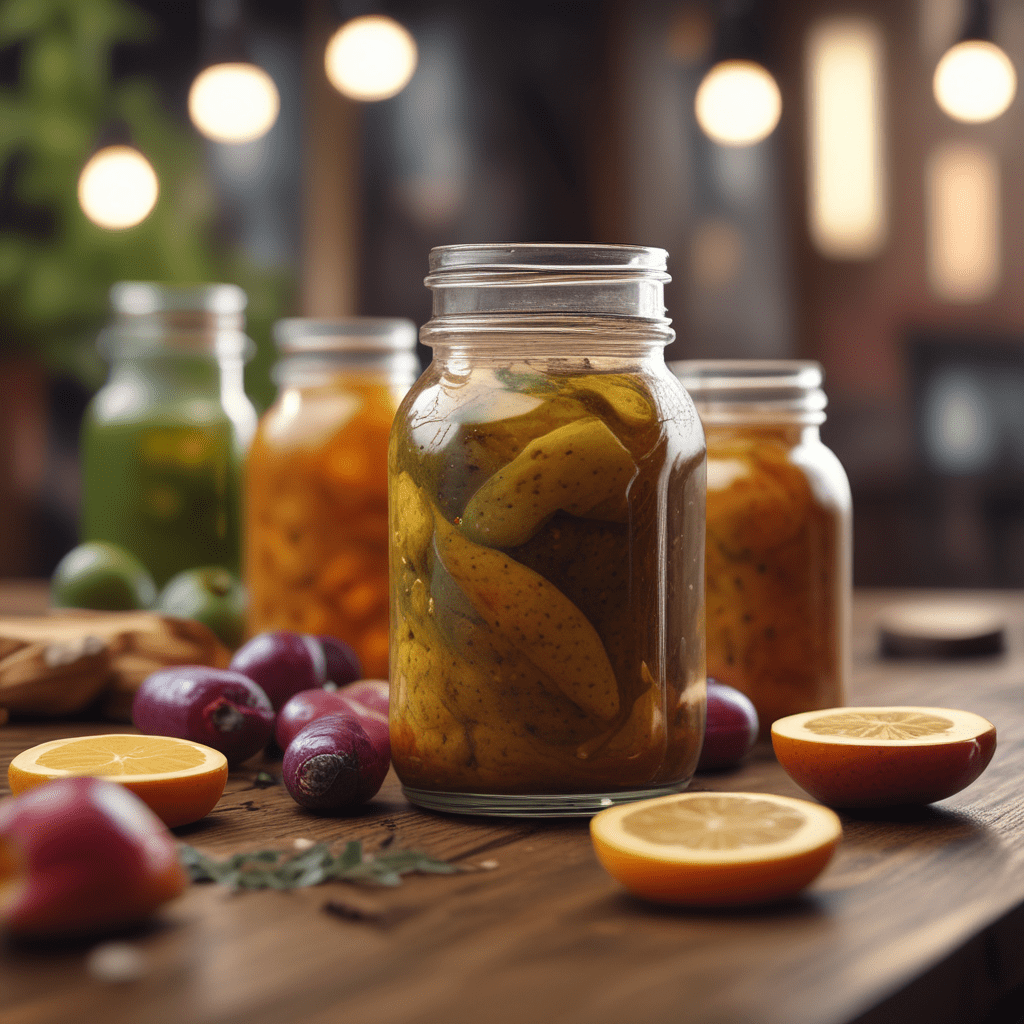
Discover the Rich Tradition of Armenian Pickling and Fermentation
Armenian Cuisine: A Culinary Journey
Armenian cuisine is renowned for its unique flavors and ingredients, with pickling and fermentation playing a crucial role in shaping traditional dishes. The art of pickling and fermenting has been passed down through generations, preserving the essence of Armenian flavors.
The Art of Pickling in Armenian Culture
Pickling in Armenian culture is more than just a method of food preservation; it is a way of infusing dishes with bold and tangy flavors. Commonly pickled ingredients include cucumbers, cabbage, peppers, and even fruits like watermelon rind. The process involves submerging these ingredients in a brine solution, typically consisting of salt, water, and vinegar, to develop complex flavors.
Fermentation: A Time-Honored Tradition
Fermentation is another pillar of Armenian culinary heritage, enhancing the nutritional value and taste of various foods. This natural preservation method involves the breakdown of sugars by beneficial bacteria, creating probiotic-rich foods like yogurt, pickled vegetables, and tangy sauces such as matzoon.
Health Benefits of Pickled and Fermented Foods
Armenian pickled and fermented foods offer a myriad of health benefits. They are rich in probiotics, which promote gut health and strengthen the immune system. Additionally, the fermentation process enhances the bioavailability of nutrients, making these foods not only delicious but also nutritious.
Exploring Traditional Armenian Pickled Delicacies
From pickled garlic and olives to fermented yogurt and cabbage, Armenian cuisine boasts a diverse array of pickled delicacies. Each region in Armenia has its unique variations, showcasing the local ingredients and culinary techniques that have been refined over centuries.
Preserving Culinary Heritage: The Importance of Pickling and Fermentation
Pickling and fermentation serve as a means of preserving Armenian culinary heritage. By perpetuating these age-old traditions, Armenians honor their ancestors and keep alive the flavors that define their cultural identity. These practices showcase the resourcefulness and creativity of Armenian cooks in utilizing seasonal produce to create flavorful dishes year-round.
Embracing Armenia’s Culinary Treasures
In conclusion, delving into Armenian pickling and fermentation traditions unveils a world of culinary treasures waiting to be explored. Whether you savor the tangy kick of pickled vegetables or indulge in the creamy goodness of fermented dairy products, Armenian cuisine offers a gastronomic journey like no other. Embrace the rich tradition of pickling and fermentation and immerse yourself in the vibrant flavors of Armenia.
Armenian Pickling and Fermentation Traditions FAQ
What are Armenian pickling and fermentation traditions?
Armenian pickling and fermentation traditions are ancient methods of preserving fruits, vegetables, and other foods using a combination of salt, water, and sometimes vinegar. These techniques not only extend the shelf life of produce but also enhance their flavors and nutritional value.
How are pickling and fermentation different?
Pickling typically involves submerging ingredients in a brine solution, while fermentation relies on the natural sugars in the food to produce lactic acid, creating an acidic environment that preserves the food. Both processes involve the growth of beneficial bacteria that contribute to the unique taste and health benefits of the final product.
What foods are commonly pickled or fermented in Armenian cuisine?
In Armenian cuisine, common foods that are pickled or fermented include cucumbers, tomatoes, cabbage, eggplants, peppers, garlic, and various fruits like plums and watermelon. Additionally, dairy products like yogurt and cheese can also undergo fermentation processes.
What health benefits do pickled and fermented foods offer?
Pickled and fermented foods are rich in probiotics, which promote gut health and aid in digestion. These foods are also high in vitamins, minerals, and antioxidants, contributing to overall well-being and boosting the immune system.


